- Home
- Pat Conroy
A Lowcountry Heart Page 7
A Lowcountry Heart Read online
Page 7
We would be fast friends for over forty years. I’ve had a bad tendency to fall in love with my friends’ wives, but it would seem unnatural not to fall for Barbara Warley. Everyone came under her spell, male and female, and it was a lemon-like soul who could resist her sweetness and vitality. She and John made a great marriage out of it and produced four children for the ages. No one writes much about the joy other people’s children bring to your life, but Caldwell, Nelson, Mary Beth, and Carter have delighted me each time our paths have crossed. Mary Beth was a Korean orphan, adopted by John and Barbara, who provided some kind of ripeness and deepening of the whole family. John was a successful lawyer in Newport News, Virginia, and a local player in Republican politics. Then he and Barbara announced that John was selling his law firm and moving to San Miguel de Allende in Mexico. John also told me he planned to become a novelist.
This was akin to me calling John Warley to tell him I was becoming an astronaut. But Mexico was their destiny as a family, and San Miguel changed everything about them and became the most romantic adventure of their lives.
On their trips back and forth between Mexico and Virginia, they would always stop for a couple of days’ rest at my house on Fripp Island. This was the time when my friendship with John deepened again and Barbara would tell me about Mexico in a rapturous trance. Now she was wearing Mexican jewelry and clothes, and everything about her life in San Miguel seemed meaningful and backlit with wonder. John and I would talk about novels and writing, and he was doing some serious work. His prose style was becoming a lovely and serious thing.
Eventually, the Warleys returned to Richmond for John to resume practicing law. Like most writers, he had discovered it was easier to make a living doing something besides writing novels. It was during their time in Richmond that tragedy struck and Barbara found out she had breast cancer; an aggressive chemotherapy treatment eradicated the cancer but destroyed her joints, and she was to suffer debilitating pain for the rest of her life.
When I called Barbara when she returned to her house to recover, I didn’t know what to say to her. Breast cancer seems so cruel and disfiguring to me, something soul-killing and personal. Being pretty had always been such a part of who Barbara was; I wanted to say something to let her know that the cancer had not touched her singular beauty.
“Hey, Barbara, you okay, kid?” I said.
“I’m hanging in there, darling,” Barbara answered.
“I still get horny when I hear your voice,” I said, instantly horrified with myself.
She saved me by laughing hard enough for it to hurt.
“It’s just like you, Conroy,” she said. “All talk and no action.”
After John retired from the law, they moved to Beaufort, and Cassandra and I saw the Warleys a lot as a couple. Everyone who met them in Beaufort was swept away by Barbara’s charm and comeliness. John finished his novel A Southern Girl, which proves that his late call to novel writing was a path well chosen. It is a brilliant literary achievement and the first in a series of novels published by Story River Books of the University of South Carolina Press. It is a novel that soars and moves with a lyrical sweep that is rare in modern fiction. I wish I had written it.
Four days before Barbara died, I attended the wedding of Caldwell Warley to the comely Vanessa Snyder at the Summerall Chapel at The Citadel. Barbara and John had returned to Mexico for the past two years and his reports of her condition had worried me. When her son Nelson walked the mother of the groom down the aisle, I turned to see Barbara Warley, the girl I’d loved for forty years. She looked frail and thin and unsteady to me, but there was an intake of breath from the crowd as this gorgeous woman was led up the aisle by her good-looking son Nelson. God, she was beautiful.
At a crowded and boisterous reception on Daniel Island, I went through the crowd looking for her and I stumbled into her looking for me. We fell into each other’s arms as we always did. She kissed me on the lips and then wiped her lipstick off with her hand. We hugged again and held each other tight.
“I still get horny when I see you, Barbara,” I said.
“Oh, Conroy. All talk and no action.”
And both of us laughed. The last words we’d ever say to each other.
Barbara took her own life at her son Carter’s house in Williamsburg later that week. The pain had gotten overwhelming, and no one I met at the memorial service displayed the slightest bit of anger at the way she ended her life. Her children were devastated and her friends wept. A group flew up from Mexico. Mary Beth was near total collapse. I cried every time I held one of her kids. I met all her friends from Virginia. The speeches in her honor were all moving and killing at the same time.
When I got home, it was announced among our Citadel classmates: “John Warley’s wife died last week. Barbara Warley—loved by everyone.”
How George R. R. Martin Made Me Love Dire Wolves, Giants, Dwarves, and Dragons…
APRIL 1, 2014
Hey, out there,
When I returned home to Beaufort after my book tour was over, I brought part of the tour back to my house with me. I’ve never found myself attracted to the world of fantasy writing, with a few quite notable exceptions. When I lived in Italy, I came under the sway of Italo Calvino and his books. The Baron in the Trees, The Cloven Viscount, If on a Winter’s Night a Traveler, and especially Invisible Cities sparked deep mysteries in me. At the same time, I became familiar with the nearly unclassifiable work of Jonathan Carroll, who has a narrative voice that can take me places I never knew I needed to go. Ursula Le Guin and Ray Bradbury have brought me many great pleasures, and I’ve tried to read as many of the fairy tales of world literature as I can. The Arthurian legends have always found a captive audience with me; I read The Once and Future King and few books have ever struck me with the powers of its wondrous imagination. I read it recently and failed to cherish it as I once did, and I asked myself if something squirrelly and unappreciative had entered my reading life as I’ve grown older.
I’ve never relished the company of the dystopian novel much, but then I remember Margaret Atwood’s The Handmaid’s Tale, and that was good enough to shut my mouth for a while. Though I revere much of the writing of Cormac McCarthy, he did not seduce me with The Road. Literary taste is a defining thing in all of us. It is as unpredictable as it is fascinating. I’m as astonished by the work of Jonathan Franzen as I am incapable of reading five pages of Thomas Pynchon. I treasure the works of John Fowles and Ian McEwan and I want to like Martin Amis, but just can’t or don’t. Metafiction sends me running to the hills and always makes me think that I’m not smart enough to understand it. I’m confident enough in myself as a reader to think, If I can’t understand it, then who the hell can? The pleasure principle kicks into high gear whenever I pick up a book. Toni Morrison’s prose style is a joy-inducing mastery of the language, and no one deserves a Nobel Prize more than Alice Munro. Philip Roth is a gift to American letters, but the most celebrated book of the eighties, Infinite Jest by David Foster Wallace, left me feeling like a beast of burden as I slogged my way toward that infinite finish line. A. S. Byatt’s book Possession grabbed me by the throat and held me in its immense thrall until the very end. I hated everything about J. M. Coetzee’s book Disgrace, but could not deny its power and greatness when I completed it. Anne Rivers Siddons’s Colony made me fall in love with Maine, and she’s the most Southern woman I’ve ever met. Ron Rash’s Serena made me think about the North Carolina mountains in a way that Thomas Wolfe never did.
I believe I could write like this forever and not remember half the books that made my time on earth so wonderful. The reading of great books has been a life-altering activity to me and, for better or worse, brought me singing and language-obsessed to that country where I make my living. Except for teaching, I’ve had no other ambition in life than to write books that mattered.
All of this is preamble to the fact that I met the most extraordinary American writer while I was in the middle of my tour. His name
is George R. R. Martin and I think he is a writer for the ages. Over the past several years, I’ve kept hearing about George R. R. Martin from his readers, who often verge on the edge of possession. But my own form of literary snobbism has kept me from reading him, because George writes in a field I encounter with much resistance—he writes in the genre of fantasy, part of the lower pastures of world fiction. Despite my love of Tolkien, Italo Calvino, Jonathan Carroll, and Ursula Le Guin, I like to spend my reading time among other writers. I had also known personally one of the great fantasy writers of our time, Robert Jordan, which was the pen name for Jim Rigney Jr., a Citadel graduate who got his degree seven years after I did. Jim and I were taught by the same distinguished English teachers at The Citadel, and he blazed an amazing trail with his Wheel of Time series that led some to refer to him as the new Tolkien. I read several books in the series, enjoyed them, but never found myself captured by Jim’s world of fantasy. Yet Jim’s books became number one bestsellers on the New York Times bestseller list every time he came out with a new volume. He died of a very extreme form of cancer in the middle of his prime. But his fantasy required a leap of the imagination I was not prepared to give at that time of my life, and I’ve regretted it. The last time I met him I asked him if he knew any other college that had produced two writers who had occupied the number one slot on the NYT list. It seemed a rare distinction. A week later he called me and said he’d researched my question and only Harvard had produced more than two. Naturally it was Harvard, but for novels like Love Story and Jurassic Park—none of the Harvard heavyweights like Norman Mailer. I thought John Updike had probably made it, but Jim was too happy with his findings and I let it go.
My friend Katherine Clark was the first full-fledged fanatic of George R. R. Martin that I found and she was relentless on the subject. Katherine had published an oral biography of my friend Eugene Walter called Milking the Moon. It’s a one-of-a-kind book that celebrates the life of a quirky unknown writer who lived a fascinating and joy-giving life. I did not meet Katherine until she introduced me before I gave a signing at Page & Palette bookstore in Fairhope, Alabama. We’ve been fast friends since. She is one of the few friends in my life who reads more than I do, and her eye is cunning and so far infallible. She went to Harvard, then wrote her dissertation on William Faulkner at Emory University. Our friendship is based on the books we’ve read and those we are now writing. Two years ago she started reading George R. R. Martin, and I listened as a fanatic was born on the telephone. By then, her good taste was a proven commodity, but I listened to her rapture with growing discomfort. She read his A Song of Ice and Fire series of five door-stopping books, then read them again to see if they were as good as she originally thought. She found them much better. She started throwing out comparisons to Dante and Shakespeare and I thought that the seafood she was eating from the BP oil spill was starting to affect her brain in Pensacola. One of the things I’ve admired about Katherine is that she can read books by people she hates, and if the writing is good, she will surrender her sword and admit to the book’s excellence. I can do that sometimes, but not often.
“Shakespeare?” I once asked Katherine, mockery in my voice.
“Yes, Shakespeare, Pat. We read the same guy and I think this guy might be better.”
“Do you tell your Harvard friends that? Or just us Citadel boys?”
“I tell all my Harvard friends that they’re just like you—they haven’t read him either.”
“Magic, dire wolves, mammoths, giants, dwarves, and dragons. I can’t believe I don’t want to read these books.”
“Read them. Then tell me I’m wrong,” she said.
“That’s a deal. If you quit talking about them,” I said.
As if often does, fate crept into this conversation without either Katherine or me noticing its intrusion. When I first saw my tour schedule, I thought it had been designed by Dante Alighieri. From last October 15 to December 20, I was on the road to push my new book, The Death of Santini. It is part of the covenant I sign with Doubleday that I’ll do everything possible to help them sell the book, including not getting drunk on tour or embarrassing my publishing company with my cutting-up on the road. I go out to sell books and it has become one of the greatest things about being a writer during my lifetime. No writer should turn down the chance of meeting the readers of his work. I went as far north as Minnesota, as far east as Philadelphia and New York, as far south as Miami, and as far west as the Missouri River. But there was one stopover that made no sense to me. In what I thought was a mistake of planning, I saw a two-day trip to Santa Fe shoehorned into the dead middle of my tour, and this seemed a couple of states too far for me. I know how daily travel wears me down after a couple of days on the road, and I had no idea why a side trip to Santa Fe was on the list. But when I called my redoubtable publicist, Todd Doughty, he explained that it was the home of George R. R. Martin and that George had recently restored an old theater in Santa Fe where he showed classic movies and interviewed authors onstage himself.
“Have you ever heard of George R. R. Martin, Pat?” Todd asked me.
“Is he a good guy, Todd?” I asked.
“He’s a wonderful guy and everyone who knows him says it’s true,” Todd answered. “Also, he happens to love your books.”
“Ah, my idea of a splendid man, myself.”
Immediately, I called Katherine Clark at her home in Pensacola and said, “I’m going to meet Shakespeare.”
“You’re meeting George R. R. Martin in Santa Fe,” she said into the phone. “I’m coming, too.”
“You were not invited,” I said.
“I’m coming anyway,” she said.
So we did. I bought a copy of A Game of Thrones from Park Road Books in Charlotte and was almost finished with it when I made the first stop of my life in Santa Fe. I woke to the birdsong of an enchanted hill town that looked more European than American. It had a modest but ancient feel to it. I was staying at the Inn of the Five Graces and it was as splendid a small hotel as it could possibly be. My bathroom was a work of art, flashing in colorful shapes of Mexican tile. There were tapestries and weavings hanging from the walls. The adobe walls make the city a muted ode to the color of brown. Because I’m not a great lover of Mexican food, the cuisine of Santa Fe will never find justice with me. I do not like the meals of my city to be cilantro based. But the fault lies in me and not in Santa Fe. It is a city of a thousand art galleries. The paintings seemed both world-class and fearfully overpriced to me, and my heart does not sing when confronted by cowboy-and-Indian art. I passed by a lot of cowboys cast in bronze and a lot of Indians eyeing them with motionless disdain.
That night we met at a restaurant in Santa Fe. By this time, I had finished A Game of Thrones and had thought it magnificent. I sat next to George and found him charming, gregarious, unpretentious, and a complete pleasure to be around. He was so disarmingly nice that I would have expected him never to have published a haiku in his life. He dressed with unstudied simplicity and wore a Greek fisherman’s hat with all the panache of a Greek fisherman. The restaurant he chose was first rate, as I knew it would be from the startling feasts he describes in such luscious detail in his books. He wears his success well, lightly threaded but perfectly made, and he’s proud of this world he has created out of his own eclectic imagination. His long apprentice work in Hollywood taught him how to write great and convincing dialogue. His storytelling powers are intoxicating and pitch-perfect in their execution. We told each other some stories of our lives and we talked to the people at the table with us. George had no need to dominate, which I found wondrous to behold. His curiosity extended around the table, to the three publicists from Doubleday—Todd Doughty, Alison Rich, and Suzanne Herz—and to the hero-worshipping Katherine Clark (who could barely utter a word in her literary George R. R. thrall). He was that rare kind of celebrity—his success had not seemed to rout the best parts of his nature. His fame had not ruined the boy in him who’d once fallen in love
with the fantastic worlds of comic books and science fiction. But the sentence I just wrote limits his achievement and hides it away in a bottle of lesser literary elixirs. I judge him much greater than that.
The next night, he interviewed me on the stage of the old, intimate theater he paid good money to restore. It was small and held about two hundred people at most, and he and I took up much of the stage that was barely large enough to behead the enemy of the state. George R. R. started the evening off in the most surprising way—he began to praise my own novels, especially The Lords of Discipline and The Prince of Tides. Several times he discussed my writing about The Citadel and how it influenced him when he wrote about the Northern Wall that protected the Seven Kingdoms from the barbarity of the wildings of the North. The brothers of the Night’s Watch, the men of the black, reminded me of The Citadel with my college’s strict codes and military purity. George R. R. remembered the black cadet at The Citadel who was helped along by my narrator, Will McLean, in The Lords of Discipline, and it helped shape his portrait of Samwell Tarly, the weakling and keeper of the Crows who is protected by the bastard of Winterfell, Jon Snow. Yes, I could see it and I could also catch the scent of Lord of the Flies. All through his work I catch the echoes of an extremely well-read man, and a man whose capacity for learning from other writers seems limitless.
Then George R. R. Martin delivered one of the great valentines of my writing life. He talked about visiting Hawaii for the first time and his wife chastising him for not looking at the spectacular coastline of Hawaii as they drove to their hotel some distance from Honolulu. He told the audience he couldn’t look at that coastline because he was in the middle of reading The Prince of Tides.

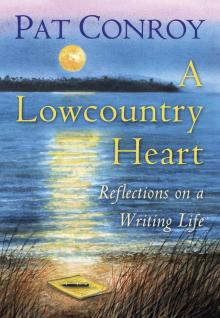 A Lowcountry Heart: Reflections on a Writing Life
A Lowcountry Heart: Reflections on a Writing Life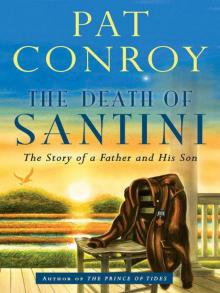 The Death of Santini: The Story of a Father and His Son
The Death of Santini: The Story of a Father and His Son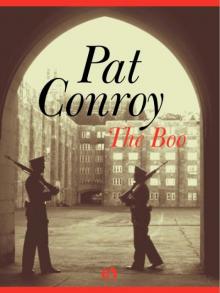 The Boo
The Boo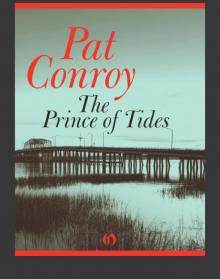 The Prince of Tides
The Prince of Tides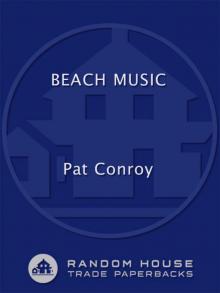 Beach Music
Beach Music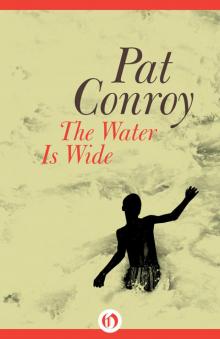 The Water Is Wide
The Water Is Wide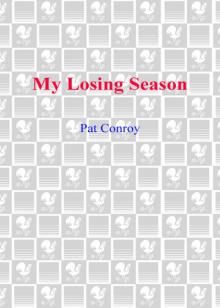 My Losing Season
My Losing Season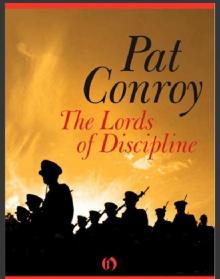 The Lords of Discipline
The Lords of Discipline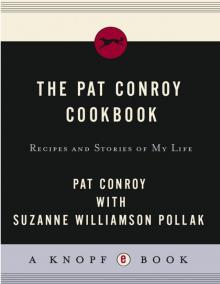 Pat Conroy Cookbook
Pat Conroy Cookbook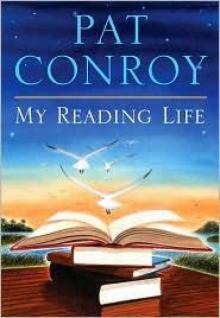 My Reading Life
My Reading Life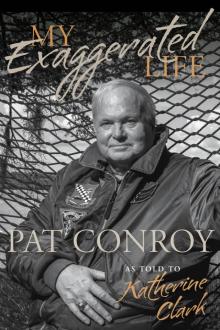 My Exaggerated Life
My Exaggerated Life The Pat Conroy Cookbook
The Pat Conroy Cookbook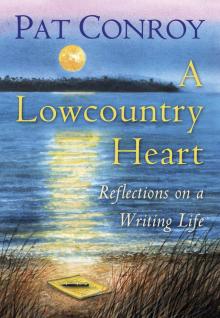 A Lowcountry Heart
A Lowcountry Heart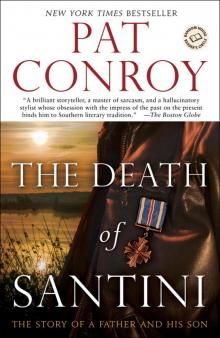 The Death of Santini
The Death of Santini